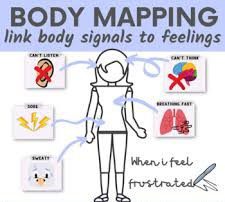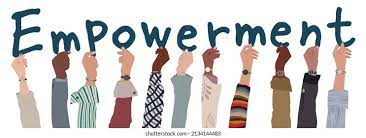Somehow, it became normal to spend more time working and less time knowing and caring for ourselves.

This is sad and counter intuitive to productivity, we can; however, learn to use our innate abilities to turn things around.
Start here –>
We have emotions for a reason. By learning to observe and become aware of our feelings, we learn to separate from them instead of being identified with them. For example, someone might say, “she gets angry at injustice” instead of, “she’s an angry bitch.” In order to control our emotional responses, we must be separate from our emotions so that we can think and use coping strategies. We must be mindful, so that emotions do not control us.

Start with a body scan daily and record the results. Our emotions and thoughts communicate our needs, compel us to take action, help us react for survival, and help us understand ourselves better. We need to observe them, listen to them, and regulate them.
Learning to regulate our emotions is more than stopping an outburst. Regulating means understanding and managing the emotions we feel throughout the day on a regular basis.

First, we must allow the feeling and then name the feeling in order to tame it.
For example, someone calls my friend a fag. I immediately feel vengefulness boil inside me, I acknowledge the vengeful feeling, and know that though it is justified, screaming or attacking someone is not. I can then proceed with a calmer solution to the hateful comment.

This seems easier than it is because we often think we are feeling the secondary emotion like anger when really we need to manage the primary emotion like vengefulness. Spend time identifying the primary or first reaction feeling. Each emotion requires a different management style. We often hide or suppress the primary because it seems odd or scary, so this is going to take some practice.
Some primary feelings that get missed are: Bitterness, relief, exasperation, amusement, thrill, disgust, triumph, aversion, pride, greed, dread, apprehension, panic, craving, despair, pity, sorrow, and guilt.
Once you have observed, identified, and learned to manage primary emotions use these skills. Decide what you want and need to communicate, practice the words until they come easily, and then express the words aloud.

Deciding, practicing, and communicating might look like this: I will tell her that calling me by my dead name hurts me. (Saying into mirror until I feel confident.) I feel bitter when you call me Sarah instead of Sam. Please call me Sam. Meeting the person face to face and saying the words practiced puts you in charge of your emotions. If interrupted or made fun of, repeat the words or leave the conversation. This is hard, but denying self is harder.
Finally, issues big or small create problems in our nervous system, but innate abilities work here too because your body is awesome. Taking in a slow breath, holding it, and letting it out slowly gives your nervous system a reset. Breath is a natural calmer. Letting out a deep sigh is your body and brains way of releasing tension. This also gives a calmer reset. Regular movement like waking reduce emotional upset by eliminating the stress hormone and waking up cells that relax your senses.

You are powerful. You have everything you need to be authentic you. You can know yourself, regulate your emotions, and use your brain and body to become the fabulous person you want to be.
When you give yourself permission to communicate what matters to you in every situation you will have peace despite rejection or disapproval. Putting a voice to your soul helps you to let go of the negative energy of fear and regret. – Shannon L. Alder
